“Gentrification is a child stealing the toy they said they never wanted to play with.”
Both Seattle and Washington, D.C., have witnessed a large exodus of Black residents over the last several decades as housing costs have risen. In 1970, 75 percent of residents in Seattle’s Central District were Black compared to just 15 percent today. Washington, D.C., long nicknamed “Chocolate City,” has seen a decline of 7.5 percent in its Black population since 2000 leading to outcries against gentrification in both communities.
In her new poem, Our Cities Still, Carlynn Newhouse examines and compares the rapid gentrification that has taken place in the two cities she’s called home, pointing it out as just the latest development in a long history of segregation and geographic racism. Newhouse is a poet, host, performer, and educator. She is a National YoungArts Finalist, the only 3-time Youth Speaks Seattle Grand Slam Champion, and ranked 4th in the 2020 Women of the World Poetry Slam. Her work has been featured on platforms such as Button Poetry, The Seattle Globalist, the Kennedy Center, and more. I sat down with Newhouse to discuss her inspirations for her poem, as well as her thoughts on gentrification, racialized spaces, and navigating ideas of community when that community continues to change.
Brandon Duong: You start your poem on gentrification talking about Seattle, specifically how white it is. What was it like growing up there as a Black girl in the 2000s, and then moving to D.C., a city where there’s a much larger Black community?
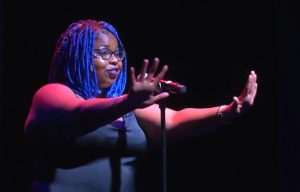
Carlynn Newhouse performing spoken word poetry on stage. Photo courtesy of Carlynn Newhouse.
Carlynn Newhouse: Growing up in Seattle, I was typically the only Black person in the room. Seattle is a very predominantly white area: over 70 percent White, depending on the area that you’re in. My mom’s from Alabama, my dad’s from South Central LA. I was grateful to grow up in a family that really made space for all of me, and all my Blackness. But going out into the world was very different. I got a lot of microaggressions, and the type of racism you experience in Seattle is cloaked in this liberal kind of niceness. Growing up and having teachers walk by and play with my hair or types of jokes and experiences I would have, a lot of it was ignorance, willful or otherwise. A lot of folks just didn’t grow up around other Black people. So, I never really felt like I belonged.
I was grateful to join poetry communities in Seattle that allowed me to be myself. I lived in a suburb called Federal Way, but when you go about 20 minutes north into Seattle, you get to encounter a lot more people of color. Seattle has a big community of Asian immigrants as well as Hispanic folks. I started to see people who looked like me and people who look other than me. But we’re all existing in the space of like, “What does it mean to be a person of color in this like, predominantly white space, and being able to be in those communities and have those conversations and feel seen and feel heard?” It was like a little place for me to escape, even if it was just for a weekend.
[Before] I moved to D.C., I had a mentor in Seattle who was a graduate of Morehouse, and he was encouraging me to look into some HBCUs. And when I got into Howard, he’s like, “That’s where you’re going.” I came out here and it was a whole new world. It was just all these Black people everywhere. Black folks from across the diaspora but all were connected by this unified experience of Blackness. It was the first place I ever felt home. It was the first place I ever felt like I could be myself and I felt normal. I was always grateful to grow up in a household that like, but to be in a whole city that was proud of its racial identity was super empowering. And I’m just grateful that I’ve been able to have that experience and going to Howard, to the Mecca, was just powerful.
How does race affect how people interact with certain spaces and communities? Do you think white people in white neighborhoods understand how people of color experience their neighborhood?
I don’t think so. The only reason I would say that is because whiteness—in the way that it’s centered, especially in predominantly white spaces—is the norm. It’s not a blessing to enter into it when you’re constantly being exposed to it. It’s sort of like speaking English, right? [If] you’re constantly around people who speak English, you never appreciate being around all of this English until you’re in a space that is otherwise. It’s like, “Oh, I didn’t realize I was around all these people that were like me.” The way that whiteness is normalized here in the States, you’re just normal. You don’t consider that you’re the “other.” To be a Black person in predominantly white space, you’re constantly aware of your race. In whiteness, you’re not constantly thinking about race and racial identity.
Being Black or a person of color, you’re constantly thinking about how your racialization in this country impacts how you walk through the world, and how people see you and how people interact with you. When your race is always the thing that precedes you in a space, it changes the way that you are able to interact in the world. You have to constantly think about all the complexities and the layers of how you move. It’s a blessing to enter into spaces where you’re around people that look like you because it’s a rarity, especially depending on where you live.
Where were you in life when you wrote this piece? Was there a moment that inspired you to write this poem on gentrification?
I wrote the poem during the peak of the pandemic, [which] hit the middle of my sophomore year here at Howard. So I went back to Seattle for about a year before I moved back to D.C. And when I moved back [home], I was hyper aware of the ways that whiteness dominated and changed the spaces I was in, because I had been in this super powerful pro-Black space for so long.
There’s a section within the city of Seattle called the Central District, which is the only predominantly Black neighborhood in the Northwest historically. Due to redlining, this was the only place Black people were legally allowed to live. It’s a beautiful, thriving Black area full of amazing co-ops and restaurants, the artistry and cultural hubs where Black people could just go and love on each other and be safe.
Every time I go back to Seattle, I see more and more that gentrification is happening to that area. Places that used to be safe spaces for Black folks are being torn down and renovated and turned into new condos and coffee shops and hipster bookstores. In an area where Black people are still in jail for marijuana cases, now you can go and buy weed from this dispensary.
I started looking at the parallels between what was happening to the Central District in Seattle, and what’s happening out here in D.C. I started getting to have conversations with D.C. natives who were like, “Nah, it used to be different. This building didn’t use to be here. And these folks [who] used to own this home got pushed out.” Gentrification continues to evolve in both places.
Even in the midst of all this gentrification, Black people are still holding onto these cities. You still see people that are not letting go-go [music] die. You see folks that are still holding on to spaces that have been historically safe for us. I wanted to be able to bring attention to that, and have those conversations.
There’s a part in the poem that says Washington, D.C., and Washington state are opposite sides of the same coin. We’re both experiencing similar things, we’re just experiencing them in different places. How do we look at how gentrification is impacting everything and how, as Black people and people of color, we still have to be proud of our communities and hold on to them and fight for them, because we’re the only people that are going to do it.
Are there any aspects about gentrification that you think aren’t mentioned or talked about as often?
The inherent violence that is within gentrification. It’s hard to not be able to be around your family anymore because you got to move to be able to afford to even stay anywhere nearby. But when we also talk about wealth—and land ownership being one of the primary foundations of wealth in this country outside of Black bodies—wealth in this country is connected to land, and for Black people to finally own land, wherever that was, regardless of the redlining that happened, you owned something. You had a piece of something you could pass down to your children.
[RELATED: Gentrification—Is Pop Culture Getting It Right?]
Here in D.C., it’s not just land ownership. It’s the community you’ve built and the wealth that you could potentially pass on to the next generation. When you have developers come into those communities and be like, “Hey we’ll buy this property from you for X amount and you got to be out within the next six months,” people sell these buildings that have been in their families for a long time because you have much financial trauma and debt, and it’s a lump sum of money that you can use to better yourself in the immediate moment. But then those developers take that home that they [bought from] you for X amount of money, and they turn into a high-rise condo where they’re charging $3,000 for a studio apartment. They’re not making space for those same communities that they bought the land from to live in that community.
It’s tearing away from communities on a personal level, but also, on a financial level as far as being able to have land ownership [and] space to pass on to your people. To convert that whole community into a space for whiteness to occupy, it’s devastating. It’s heartbreaking regardless of what community of color you’re coming from, especially as Black folks to be coming from a space where you came from not having anything to finally having something. And to have that be taken over.
There’s [fewer] places where you can afford to be a person of color in this country. People say, “Look how much safer this community is now and look how prettier it is,” but don’t talk about how Black people that live in that community are getting the police called on them for playing music too loud, and how people who have been selling plantains on the street for the last five years, now they’re getting shut down for not having a vendor’s license. All these things tear away the fabrics that have already been built there. It’s necessary for us to fight for those spaces because it’s not just about being able to have community for people to connect, it’s also about being able to have wealth redistribution, being able to have a space for you to just exist and not be constantly hypervigilant and aware and having to constantly respond to whiteness, even within your own spaces.
Do you have any thoughts on the ties between segregation, gentrification, and the roles that ethnic enclaves and neighborhoods should play in today’s society?
I think the conversation centers around power and who has it. Those in power are the ones who get to [do] the decision making when it comes to segregation. It’s interesting to me when you see folks be like, “Are you advocating for segregation?” and “This is the problem because we have folks [who] want to be separated.”
Historically, segregation in this country was about predominantly cis white men in positions of power, creating a system that did not allow Black people, people of color, to go into other spaces with white folks. It was about disenfranchising people of color. It was about oppressing them. It was about making sure [they] had less access to resources. That decision was made solely based off [of white communities’] comfort levels: “We don’t want to have this type of person in my community. I don’t feel safe. It’s going to bring down the property value.”
When people’s response to folks fighting against gentrification is, “Oh, you want to segregate spaces?” First of all, these spaces were historically segregated. And two, to think about “how do we allow for folks to continue to love and interact with each other” in a powerful and intentional way, we have to think about who has a seat at the table to be able to make that decision. If we want to have communities where folks are able to share different cultural experiences, that’s fine and beautiful and powerful if they are the ones that are allowed to sit at the table. But what happens with gentrification is people who have money and power come in and take over communities by financial force. You’re not getting to consent in decision making about how that impacts your community.
When we’re having these conversations, we have to be very intentional with our language [and] history. And look at where these predominantly people of color communities come from, why they exist in that way, and also remember that it is necessary for people of color to have safe spaces to go to. It’s necessary for people of color to be able to have land ownership, to be able to have communities to be able to exist in. Because if we wanted to have the whole country just together, no separation whatsoever, that would be great if people of color and immigrants had access to those spaces in the same way. But [they] don’t.
You go into predominantly white neighborhoods, and Black people either can’t afford to live there, or you’ll see people who just won’t sell homes [to them]. There’s a story about this family that was trying to sell a home and they were having a really hard time selling it. What they decided to do is remove any type of indicators that Black people lived in the household. The sale started happening immediately, and the rates that people were willing to offer to buy a house increased. You see people willing to discriminate against Black people and people of color in a way that is not overt racism, but is a way to continue to disenfranchise people of color.
So, I do not advocate for segregation. I do advocate for a safe space for people of color to be able to love on each other, to be able to just exist within themselves. And I advocate as well for any people that want to move into different communities. But the historic reality is these communities exist because there was no other safe and affordable place for people to live. I want to make sure that as a community, we honor our ancestors, we honor the people that came before us. It’s important for us to be able to hold on to what belongs to us and make sure that our cities are still ours.
Thank you.
You can follow Carlynn Newhouse on Twitter, Facebook, and Instagram.

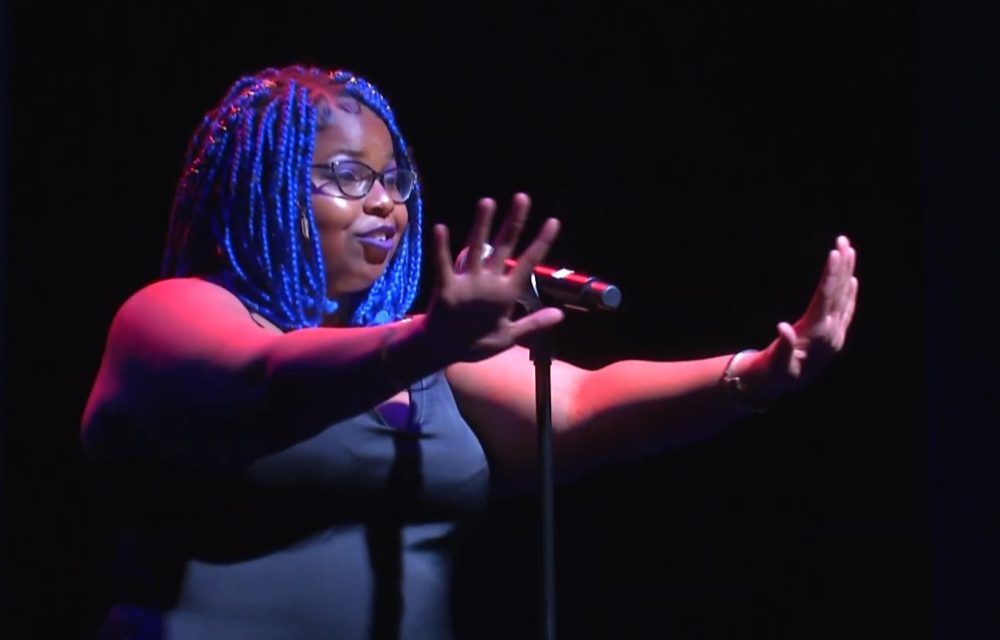

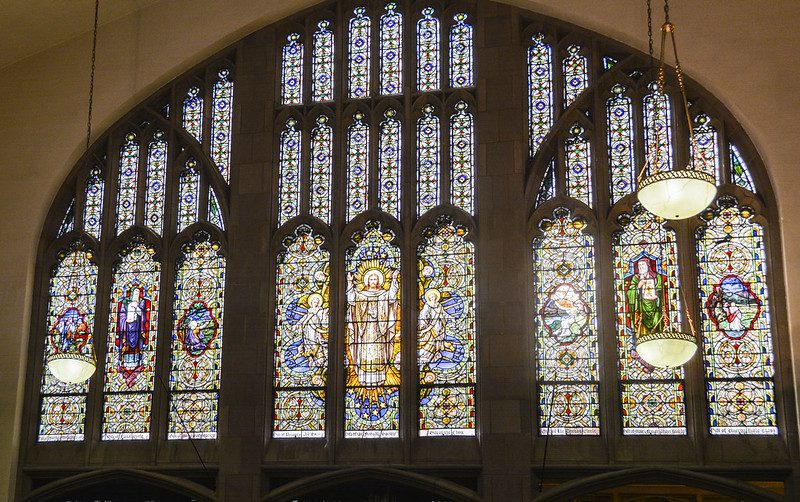
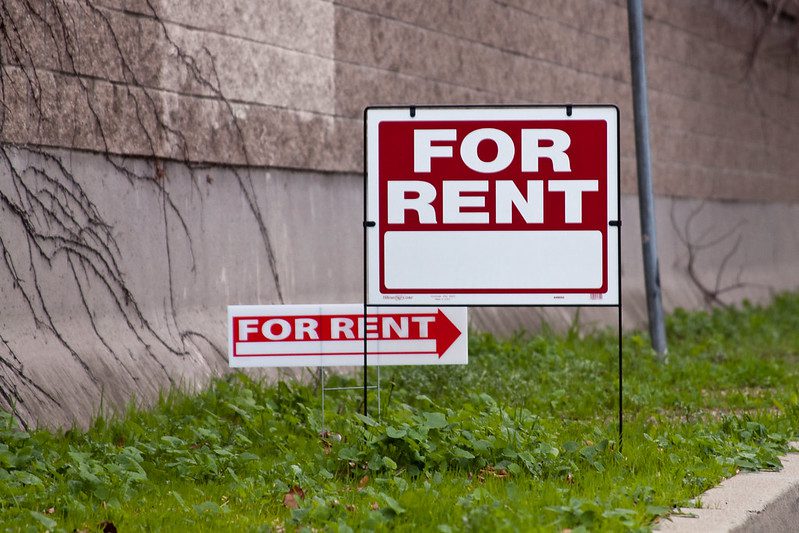
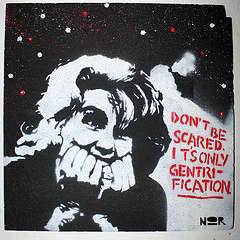
This so simple to solve, they need black investors to invest in the cities areas and then gentrification can take place and if done right can help the less fortunate blacks move up in the world. Lack of Education and criminal enterprise within communities is hurting them more than gentrification by other races. Money talks but a lot of well to do blacks that could invest avoid poor blacks like a plague.
WOW!